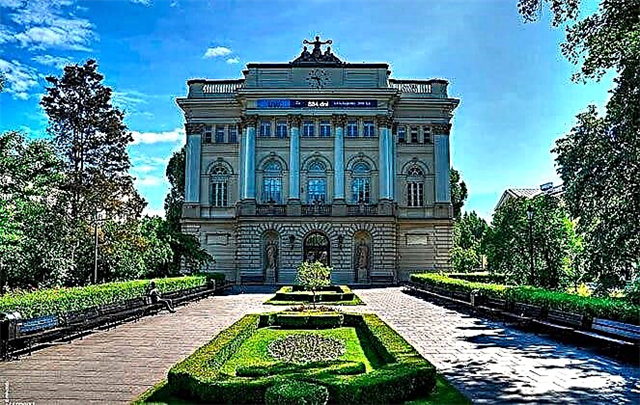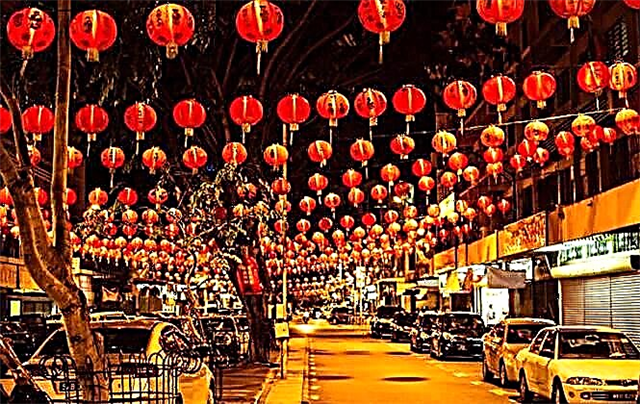In recent years, more and more Russians wishing to work abroad or move to other countries for permanent residence are paying attention to the PRC. But it should be borne in mind that the way of life and traditions of Eastern countries differ significantly from Western ones. Therefore, before deciding to move, it is worth learning in more detail what opportunities and prospects life in China can offer a foreigner.
Economy
For many centuries, life in the Celestial Empire was closed from foreigners. Only in 1860 did the country begin international trade.
At the beginning of the twentieth century, the emperor was overthrown, and in 1949 the communists came to power, but their economic activities did not lead to economic progress. Only after the death of Mao Zedong in 1979, the country began active reforms, combining them with a policy of international openness.
The main features of the Chinese economy are the preservation of the socialist system while simultaneously using capitalist market mechanisms, attracting international investment and technology.
As a result, by the end of the twentieth century, China became one of the most dynamically developing countries in the world with an annual GDP growth of up to 16%.
The modern Chinese economy is the second in the world after the United States in terms of GDP and the first in the world in terms of industrial production. The country encourages the import of high technologies, creates industrial and technological parks, actively develops education and housing construction. And although by 2021 the percentage of GDP growth fell to 6.6%, this still exceeds the indicators of most other countries.
Living conditions
In order to objectively assess what the standard of living in China is in comparison with Russia and other countries, it is worth considering the various components that make up it.
Work and salary
The country has a huge number of diverse industries and fields of activity in which representatives of different professions can find work - from mathematicians, engineers and computer specialists to doctors and artists.
The living wage in the country is $ 375 per month, the official minimum wage in different provinces is from $ 190 to $ 325 per month.
The average salary in 2021 reached $ 750 per month, but the level of wages varies significantly from area to area. In large industrial cities, the average earnings exceed $ 1,000 per month, and in the countryside, the monthly income barely reaches $ 450.
The size of the salary directly depends on the type of occupation and the position held. The income of qualified specialists (doctors, representatives of the IT sector, airline pilots) can reach $ 3,000-5,000 per month.
There are a significant number of dollar millionaires among Chinese entrepreneurs. China's well-to-do society is concentrated mainly in large cities. There is no shadow economy in the country; all its citizens pay taxes.
Social protection
The PRC government pays great attention to the development of social protection of the population. The demographic situation significantly affects the pension provision: the state policy "one family - one child", which was in force from 1979 to 2021, led to the fact that now the number of older people in the country has significantly increased.
Until 2009, only civil servants and industrial workers could receive pensions here, but later, due to economic growth, pensions were introduced for all categories of residents. They are paid not only by the state, but also by various accumulative funds.
The size of payments in comparison with Western countries is small, they can be only 10 or 20% of the salary, but the average size of pensions is comparable to Russian ones.
Women go on vacation at 55 years old (in heavy industries - at 50 years old), men at 60 years old. To receive retirement benefits, you must have at least 15 years of work experience.
Poverty in China has not yet been completely overcome: about 1% of the country's population lives on an income of about $ 1 a day. But there are various benefits for low-income families, and favorable conditions for employment are created for disabled people.
Medical service
The first medical treatise "Huangdi Neijing", which laid the theoretical foundations of Chinese medicine, appeared more than 2000 years ago. Until the middle of the twentieth century, the inhabitants of China were treated exclusively according to traditional methods, and only in the 50s, Western medicine began to be introduced in the country.
In the PRC, medical care was initially free, but by the end of the 70s, difficulties arose with its state provision. Currently, medical care in the country is paid, but a significant part of the treatment is covered by insurance.
The health care system combines Western and national traditions, and this gives good results. The average life expectancy in China in 2021 reached 76.4 years (74 years for men and 77 years for women), and in some regions this figure is even higher. For example, in Shanghai, people live an average of 83.6 years.
In terms of maternal and child mortality, the PRC is at the level of developed Western countries. Traditional folk medicine gives good results in the fight against many chronic diseases, so many foreigners, including those from Russia, are treated in the country.
Education
The education system in the country is in many ways similar to the Russian one. From 3 to 6 years old, children attend kindergartens, and at school they study for 12 years. Incomplete secondary education (9 years) is compulsory for everyone and is free in public schools. There are also private schools, including English-speaking ones.
School loads are very high and the selection of the best students is taking place in a highly competitive environment, which is not surprising given how many people live in China. After the 9th grade, you can enter a secondary vocational school.
Higher education in the country is very prestigious, the number of applicants is 100-300 people per place. The quality of higher education in the PRC meets international standards: many universities in the country have high world ratings, and their diplomas are recognized in the United States and Europe.
Universities in Beijing, Shanghai, Zhengzhou, Dalian accept many foreign students. For foreigners, there are preparatory courses in which they master the Chinese language before the main studies.
However, there are universities in the country where education is conducted in English: for example, Southern University of Science and Technology (SUSTech) in Shenzhen.
Crime
The most famous Chinese criminal organization is the triads. This is the name of the criminal gangs that were formed 2500 years ago with the aim of returning to the throne of the Celestial Empire of the Ming Dynasty. Since the beginning of the twentieth century, their activities have assumed a predominantly criminal nature.
After the communists came to power, the leadership of the triads relocated to Taiwan and Hong Kong, but their influence still extends to all countries of the world. After the start of market reforms, a large amount of capital of the Chinese mafia, which was previously concentrated in Hong Kong, was invested in the country's economy and used to develop legal businesses - restaurants, hotels and nightclubs.
Another criminal area with which China is actively fighting is corruption among government officials. At the end of the twentieth century, its scale increased so much that the death penalty was introduced for economic crimes in the country.
Currently, the crime rate in the country has significantly decreased, and foreigners can travel around it safely enough, but petty theft in tourist cities is quite common.
Climate features
China is located in three climatic zones: temperate, subtropical and tropical. In different parts of the country, the climate and weather are very different.
- In the northern part, especially in the mountains of Tibet, in winter there are frequent frosts down to -20 ° C and even -30 ° C.
- In Beijing, winters are less severe (5 ° C on average).
- In Chengdu, the winter temperature is about + 8 ° C, in Guangzhou + 15 ° C, and in the resorts of Sanya, the thermometer rarely drops below +20 ° C even in January.
- The differences in summer temperatures are not so significant: throughout China, the air heats up to + 25 ° C and above.
The weather in the country is quite changeable: typhoons, tsunamis and floods are frequent in the southern and southeastern regions, and dust storms and droughts in the northern regions.
Ecology
The high rates of economic development of the country, the increase in the number of thermal power plants and cars have negative consequences in the form of a significant deterioration in the environmental situation.
China's air pollution and carbon dioxide emissions are the highest in the world. A common sight in many large cities is smog obscuring the outlines of buildings and people wearing respirators on the streets.
The pollution of rivers, groundwater and soil is very high, since about 80% of all industrial effluents are not treated. You cannot drink tap water in the country; water bodies in many areas are overflowing with garbage.
This affects the health of the local population, which often suffers from respiratory and oncological diseases.
Living expenses
China is a large and diverse country, so the cost of living in different regions and cities can vary significantly. Living in the provinces of China is much cheaper than living in a big city.
A villager with a monthly income of $ 100-200 in some areas can be considered a representative of the middle class, and in Beijing or Shanghai, for a comfortable existence, you need to earn at least $ 1,000.
The composition of the consumer basket also varies significantly. In modern China, there is a very high level of property stratification: there are both millionaires and peasants who live on $ 30-50 a month. But on average, prices for goods and services are much lower than in the United States or neighboring Japan.
Housing and utility bills
In China, people live in their own or rented housing. The rental price, depending on the city, location, as well as the area and comfort of the apartment may differ significantly.
You can rent a studio or a two-room apartment in the center of Beijing or Shanghai for $ 800-1,000 per month, in a residential area - for $ 300-600. A tenant will pay $ 470-500 for a one-room apartment on the outskirts of the metropolis.
When buying an apartment in Beijing, prices are $ 10,000-18,000 per square meter in the center and from $ 5,000 in the outskirts. In small towns, prices are half or three times lower.
Whether it is expensive to live in China can be judged by the cost of housing and communal services. On average, their costs are $ 60-100 per month in winter, and in summer or in warm areas where there is no need for heating - up to $ 50 per month. Utility bills are required to be paid on time, otherwise electricity and other services are immediately cut off.
Food cost
The cost of food in China is lower than in Russia. Fruits cost $ 0.8-3.2 per kg, potatoes $ 0.45, rice $ 0.5, meat $ 3.2-4, chicken eggs - about $ 2 for 12 pieces.
The selection of fruits and vegetables is very large. But milk and dairy products are significantly different from those to which Russians are accustomed, and are expensive.
One dish in a cafe will cost $ 1-2.5, in a restaurant - $ 2.5-5, but the portions are usually large, and there are enough of them to get enough.
On average, the cost of food for a person with European habits is up to $ 200 per month, but the Chinese often spend significantly less.
Public transport
The most popular public transport in big cities is metro and buses. A metro ride costs 2-8 yuan ($ 0.3-1.2), depending on the distance of the trip, by bus - 1-2 yuan ($ 0.15-0.3).
Many people use bicycles for commuting, which can be rented for about $ 0.40 per hour, and after arriving at the desired location, they can be rented at the nearest public bike park.
It is most convenient to travel between cities by train (high-speed or regular) or by bus.
Mobile communications and internet
The Internet in China operates according to its own rules. It is autonomous and difficult to access the World Wide Web. Services such as Facebook, Youtube, Instagram, Skype, VKontakte, mail on Gmail or Yandex are inaccessible without a VPN either for a computer or for a mobile Internet.
In addition, it is often impossible to download and install a VPN in China, so this must be done before arriving in the country.
When accessing hosting sites in other countries, the Internet works very slowly, the computer does not have the ability to open many tabs at the same time, and sometimes you have to turn off images to make loading easier.
Internet connection in apartments costs about $ 20 per month, the most popular providers are China Unicom and China Telecom.
To buy a SIM card for your phone, you need to go to the nearest office of a mobile operator with an ID. China Unicom and China Mobile have mobile Internet.
Cultural features
We bring to your attention interesting facts about life in China, which will help you better understand the people of this country.
- The most important characteristic of the Chinese mentality is patriotism. The Chinese are proud of their country, its ancient history and culture. They are willing to work hard and endure hardships for the prosperity of their homeland.
- There are many different peoples and ethnic groups living in China who practice different religions. Most Chinese are adherents of syncretism, a religion in which Confucianism, Taoism and Buddhism are intertwined. There are also Buddhists, Muslims (mainly in the Xinjiang Uygur region) and Christians (Orthodox and Catholics).
- Regardless of their religious affiliation, the common thing for all residents of the PRC is a respectful attitude towards ancient traditions and family. The Chinese revere the older generation. Elderly parents often live with their older children or receive financial support from them.
- The head of the family in the PRC is a man, and women traditionally occupy a subordinate position. But men do not consider it shameful to do housework, they are very caring for children and devote a lot of time to their upbringing.
- Due to the country's demographic characteristics, there are more men than women, and it can be difficult for them to find a spouse. Therefore, the Chinese willingly marry foreign women.
- People in China dress very simply and prefer comfortable, practical things. Clothing in the country is inexpensive. We are used to thinking that Chinese mass-produced items are often of poor quality, but consumer goods for domestic consumption in the country are much better than export ones. In addition, there are many boutiques with expensive and sophisticated items.
- When eating, the Chinese still use only chopsticks; European cutlery (knives and forks) is not accepted here. Tea ceremonies remain an important part of the national culture.
- When dealing with strangers, Chinese people are always polite and value relationships based on mutual respect. The image of the reserved and correct Chinese, familiar to us from the movies, does not quite correspond to reality - in the circle of family and friends they are much more emotional. But hard work and the ability to self-control are cultivated in children from a very early age.
- The attitude towards foreigners in the PRC is quite friendly, especially towards Russians, with whom the inhabitants of China are connected by a socialist past.
- In the provinces, where foreign visitors are rare, they are of general interest. But even with a good knowledge of the language and traditions, it is not easy for a foreigner to become your own in this country.
Russians in China
In recent years, the number of visitors from Russia to the PRC has significantly increased and, according to statistics, reached 50,000 people in 2021.Russians come to work temporarily or permanently as artists, translators, teachers of Russian or English. Many of them work for international companies or do business with Chinese partners.
In addition, descendants of Russian settlers who ended up in immigration after the collapse of the Russian Empire live in Xinjiang, Inner Mongolia and Heilongjiang Province. Most of them are of mixed origin, but they retain the Orthodox faith, Russian traditions and language.
Russian pensioners in the PRC
In recent decades, the PRC has been popular with Russian pensioners. A pension of 8,000-10,000 rubles a month, which in Russia (especially in Siberia and the Far East) can only be lived on very modestly, is quite enough to ensure a comfortable life for pensioners in China.
Utilities and products in this country are significantly cheaper than Russian ones, so many elderly people sell or rent their homes in Russia and go to the PRC. They are attracted by the warmer climate, lower daily expenses and Chinese traditional medicine, which is effective in treating chronic and age-related diseases.
Many Russian pensioners settled in Harbin and cities located near the Russian-Chinese border - Hunchun and Heihe.
There are traditional Chinese medicine clinics for elderly foreigners and shops with Russian-speaking service.
Where better to go
The answer to the question of where it is better for Russians to live in China depends on the purpose for which the person comes. Large cities provide ample opportunities for doing business or high-paying jobs; in addition, here you can meet compatriots who will help you understand the unusual Chinese realities.
For example, in Beijing there is a whole "Russian quarter" located on Yabaolu Street, with shopping centers and restaurants with Russian cuisine. Mostly businessmen and Russian students who study at universities in the PRC live in Shanghai, and the Russian Shanghai Club operates.
Life in Guangzhou will appeal to those who specialize in wholesale trade: it is a real trading capital of the country with a huge number of markets where you can buy inexpensive goods for every taste and in any quantity.
The move to Hangzhou, China's Silicon Valley, attracts programmers and other computer specialists. In addition, English teachers and representatives of the modeling business from Russia work here. There is a bakery in this city that prepares Russian pies.
For students, the best cities to live in China are not just megacities. In Zhengzhou, Dalian, Shenzhen, Tianjin there are famous universities (including those with teaching in English), which provide excellent modern education. They are easier to enroll in than universities in Beijing, and they often offer scholarships to Russian students.
Advice from experienced settlers
In China, you can meet Russians who have been living in the country for several years and are not going to leave it. Here are some tips to help newcomers appreciate the pros and cons of living in China.
- The Chinese language seems very difficult to Russians, but if you are in a linguistic environment, it is easier to master spoken language than many think. With writing, the situation is more complicated, but if you learn 1,000 of the most common characters, you can understand up to 70% of Chinese texts and inscriptions. The main dialects in the country are Cantonese and Mandarin.
- To get a job in the PRC, you do not need to be fluent in Chinese. There are activities in which you can do without it, and for explanations in stores and in everyday life, it is enough to master several dozen words and expressions.
- Knowledge of English in China will not help you too much - in this country few people know it, mainly in large cities.
- The consumer basket of the Chinese differs significantly from the European one, so many Russian migrants suffer from a lack of familiar products. But supporters of healthy eating will love the Chinese cuisine, which is full of vegetables and fruits.
Conclusion
The PRC is a large and interesting country in which ancient history and modern innovations are harmoniously combined. Many Russians are thinking about going there not only as tourists, but also for study, work, and even permanent residence.
It is not always easy for foreigners to adapt in China because of the significant differences in mentality and traditions. But in general, how Russians live in China depends primarily on their openness to new things, their readiness to learn, and their benevolence in the perception of an unfamiliar culture.











